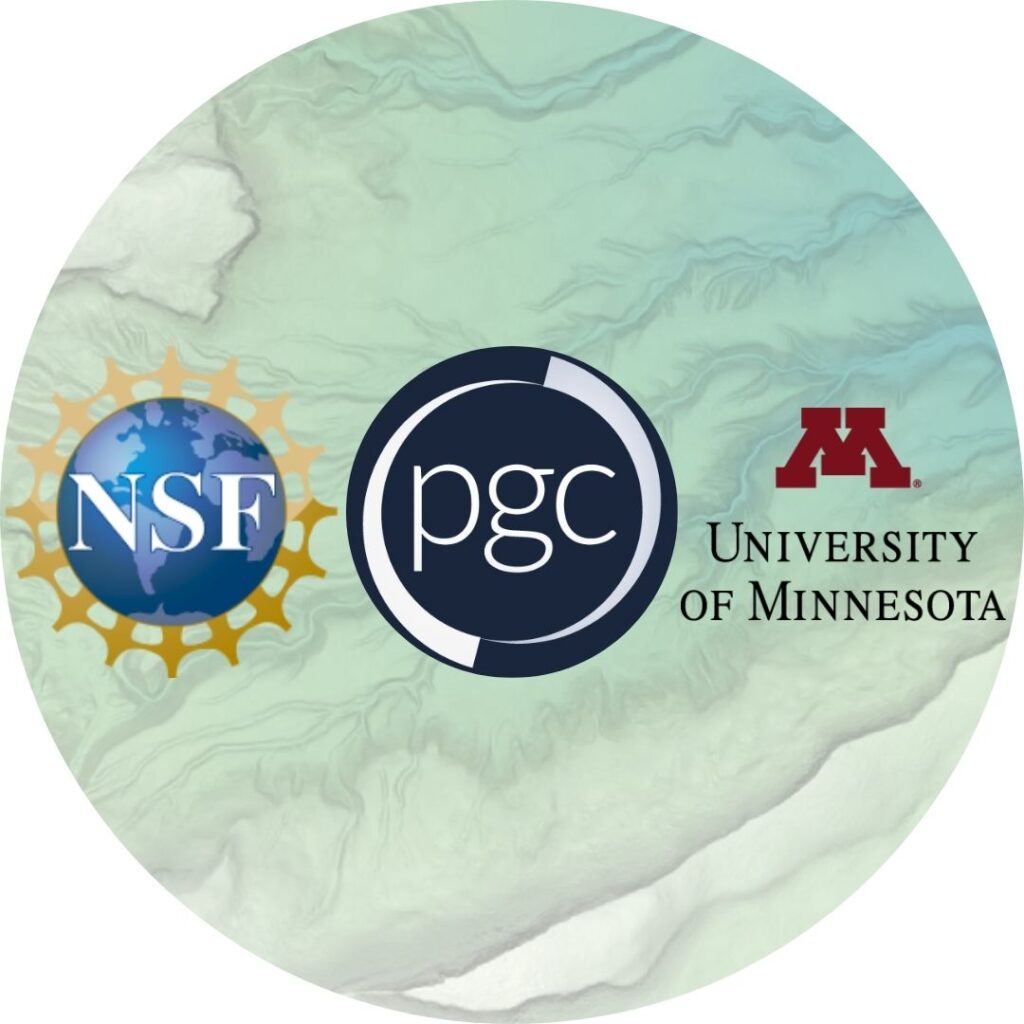
Sponsored by the National Science Foundation
Unlock the Power of Polar Geospatial Data:
Are you ready to dive into the heart of polar geospatial data? Join us for the transformative Getting Started With PGC Data workshop hosted by our talented team at PGC. This 3-day workshop is tailored for federally-funded researchers and students who are new to geospatial or remote sensing approaches to polar science. The goal is to empower polar scientists with the technical skills needed to effectively analyze and maximize the broad applicability of high resolution satellite imagery and digital elevation models through specialized training, interactive workflows, and networking opportunities.
🗓️ Date: February 28, February 29, and March 1, 2024
📍 Location: University of Minnesota – Twin Cities Campus
🧑🤝🧑 Participants: Funded by NSF-OPP or NASA Cryo, Limited to 30 spaces
Report
Refer to this document for official workshop analysis and conclusions.
About
Why Attend?
- Broad Applicability: PGC hosts vast datasets crucial for polar science and logistics
- Specialized Training: Learn GIS techniques tailored for polar data analysis and visualizations
- Interactive Workflows: Hands-on experience with satellite imagery and digital elevation model (DEM) access
- Networking Opportunities: Connect with the vibrant polar science community
Exclusive Benefits for Participants:
- 🏨 Lodging: Accommodation for 30 participants
- 🚗 Travel Grant Support: up to $500 in reimbursable travel costs
- 🍽️ Catered Lunches: Fuel your mind with provided meals
- 🤝 Networking Event: Forge lasting connections with experts in the field
Why PGC?
- Data Access: Access secured and licensed data in PGC products and web services restricted to current federally-funded polar researchers, federal employees, or subcontractors
- Scientific Utility: Tailored workshop based on the long-standing interest of the PGC community
- Expert Guidance: Learn from experienced personnel with a successful history of workshops and bootcamps
Program
Day 1: Working with Satellite Imagery
We will cover Maxar high resolution commercial imagery with an overview of the specifications, access points, processing options, and licensing restrictions concluding with a hands on exercise on how to derive additional information/data from the imagery.
Day 2: Working with Digital Elevation Models
We will cover high resolution DEMs generated from the Maxar commercial imagery with an overview of the specifications, methodology, access points, and usage restrictions concluding with a hands on exercise on how to co-register individual DEMs to facilitate scientific results such as surface deformation and/or volumetric changes.
Day 3: PGC Panel Q&A and Feedback
Finally, we will host a panel of PGC staff to answer questions and designate time to receive feedback on the workshop topics and logistics.
Don’t miss this chance to elevate your polar geospatial skills and be part of a groundbreaking event. PGC anticipates “Getting Started With PGC Data” will accelerate your research and expand your network. Apply below!
Proudly brought to you by the National Science Foundation and the Polar Geospatial Center – Your Gateway to the Polar World. 🌍❄️
Application Form
Don’t miss this chance to elevate your polar geospatial skills and be part of a groundbreaking event. PGC anticipates Getting Started With PGC Data will accelerate your research and expand your network. Participants must be funded by a National Science Foundation Office of Polar Programs or NASA Cryosphere Programs award. Space is limited to 30 participants. PGC verifies all funding sources after you submit your application.
Submit your application by January 11, 2024 EXTENDED to January 16, 2024!
Decisions will be made by January 19, 2024
Organizers & Sponsor
Organizing committee
- Cole Kelleher, PGC User Services Manager
- Cathleen Torres Parisian, PGC Engagement Lead
- Kelsey Zimmerman, PGC Geospatial Support Specialist
- Chris Carter, PGC Geospatial Support and Engagement Specialist
Supported by
Support for this workshop is provided by the National Science Foundation (Award 2129685)
